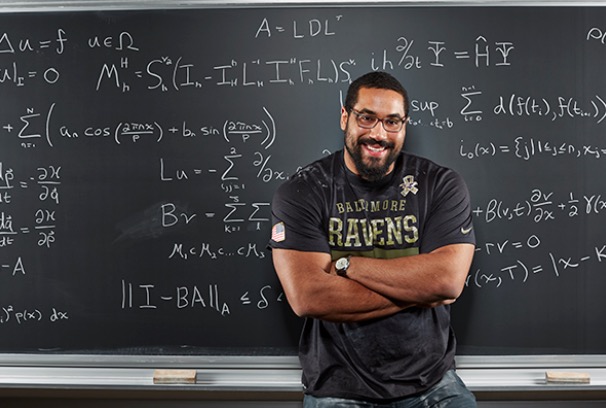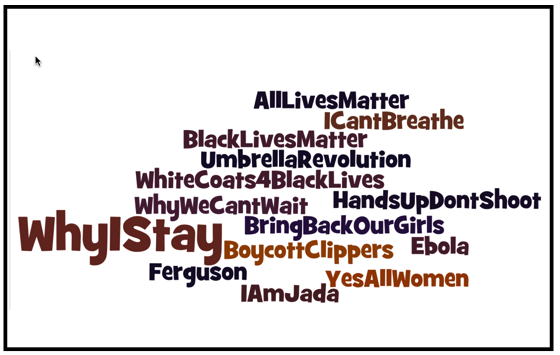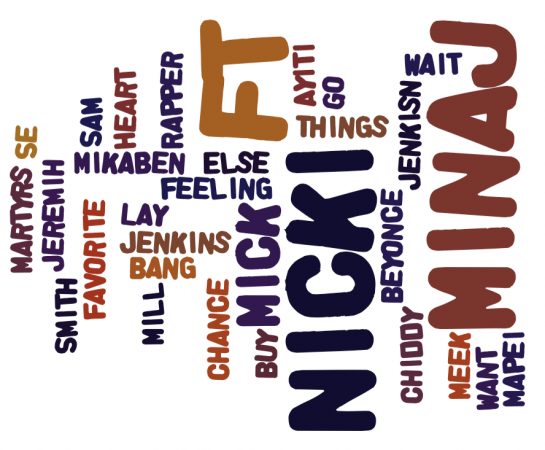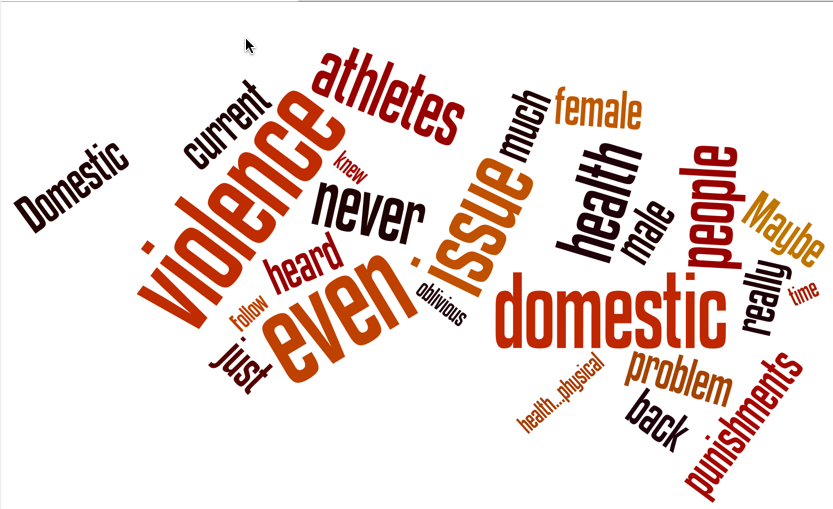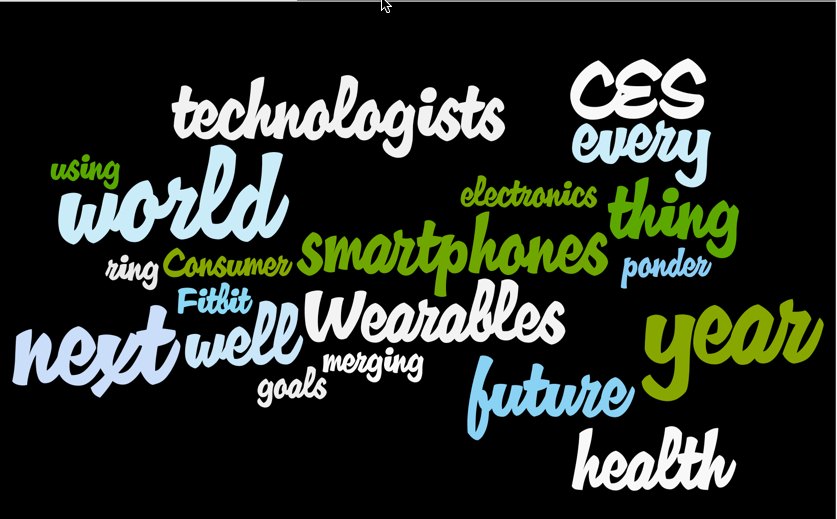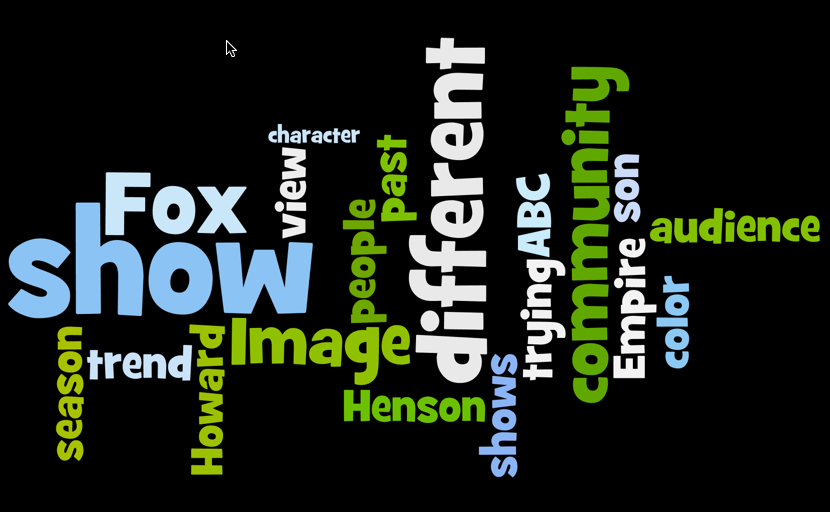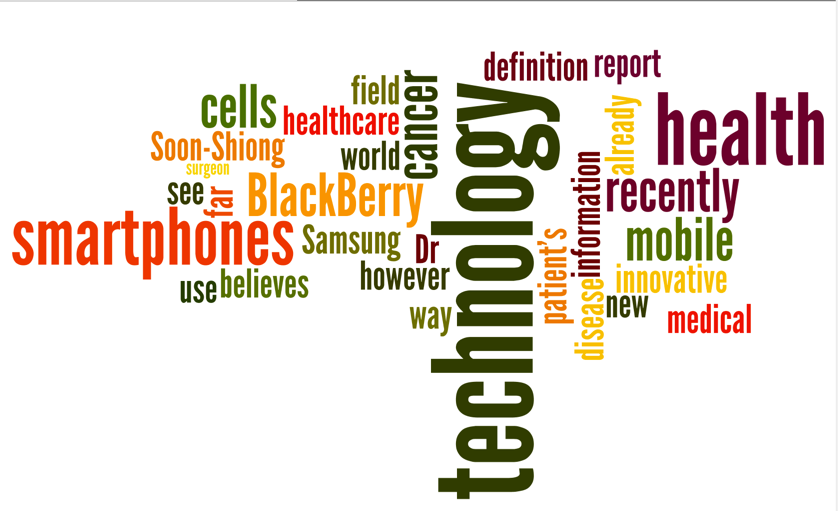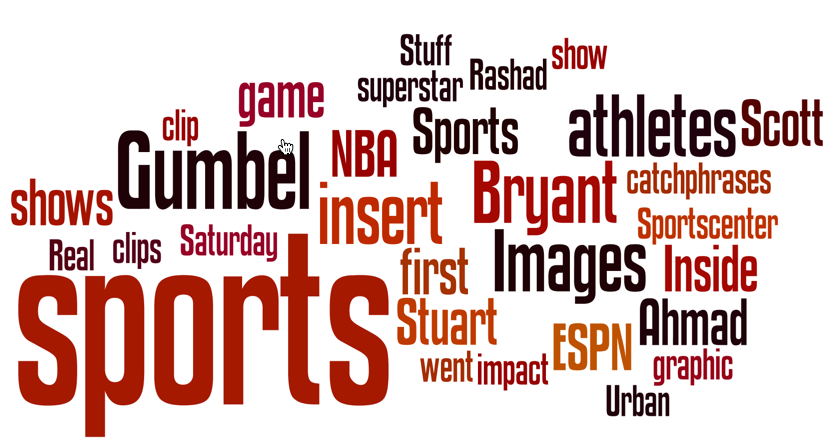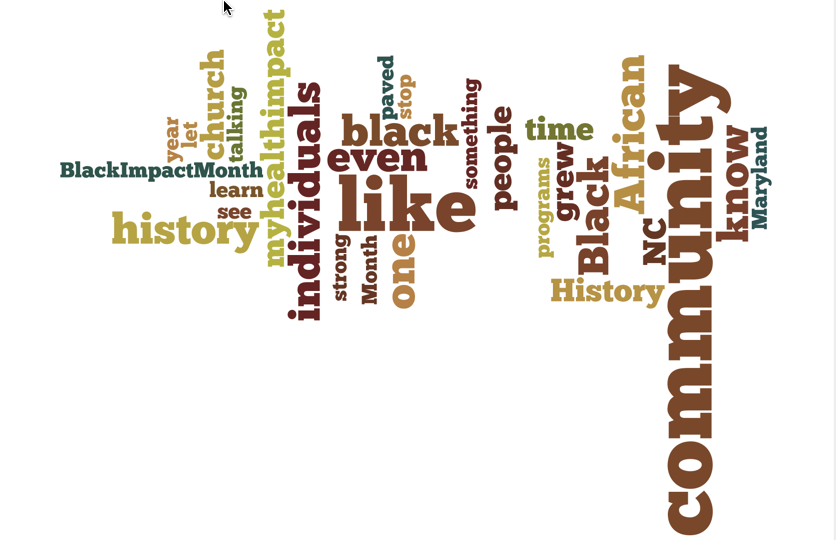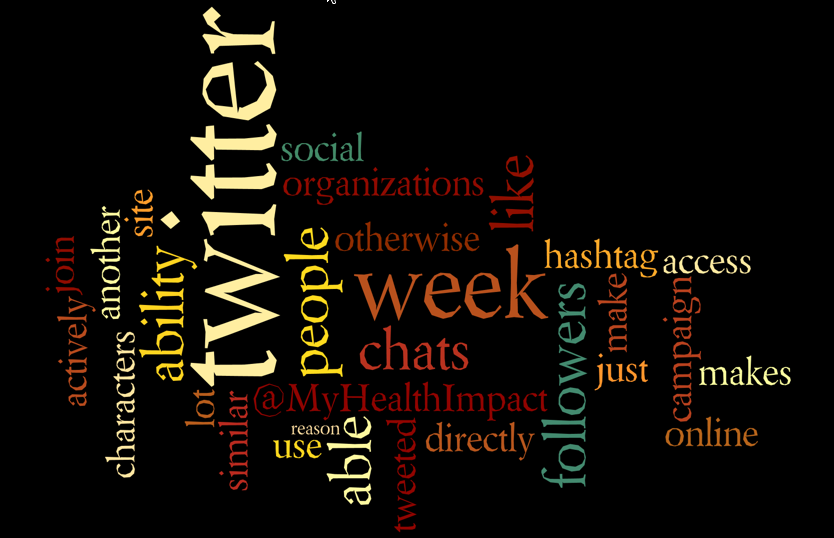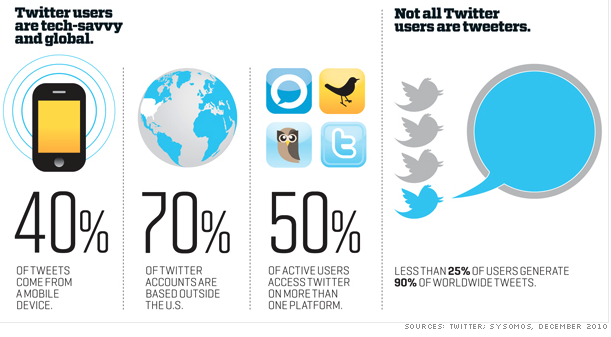myHIN Blog
Category: STEM Articles

October 28, 2015
Biometric Sensing: Monitoring a Developer’s Health
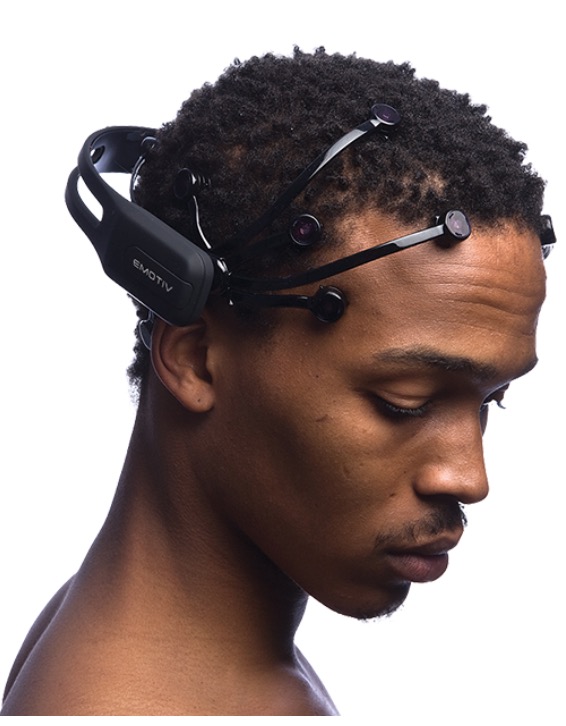
One of my recent projects incorporates to how to use technology to monitor stress and engagement during activities. A few of the tools used include the Emotiv EPOC+ EEG and Shimmer GSR Bracelet. These are two of the cool new gadgets that I will use to monitor cognitive load in programming environments. We can identify changes in the types of cognitive loads described utilizing techniques that measure brain activity, eye movement, and skin conductance. Mapping the changes in cognitive load during programming helps us gain a better understanding of how programming can be a representation of the applicant's knowledge.
There have been many studies that have studied the use of these tools, but not many that study the safety of software developers. Defining the usage of these tools for software developers can open up doors as to how we can monitor the well-being of developers. This is also a giant leap forward in understanding why so many developers are leaving the field of computing. Through the analysis that this tool provides we will be able to monitor the daily work of developers beyond what they can personally report.
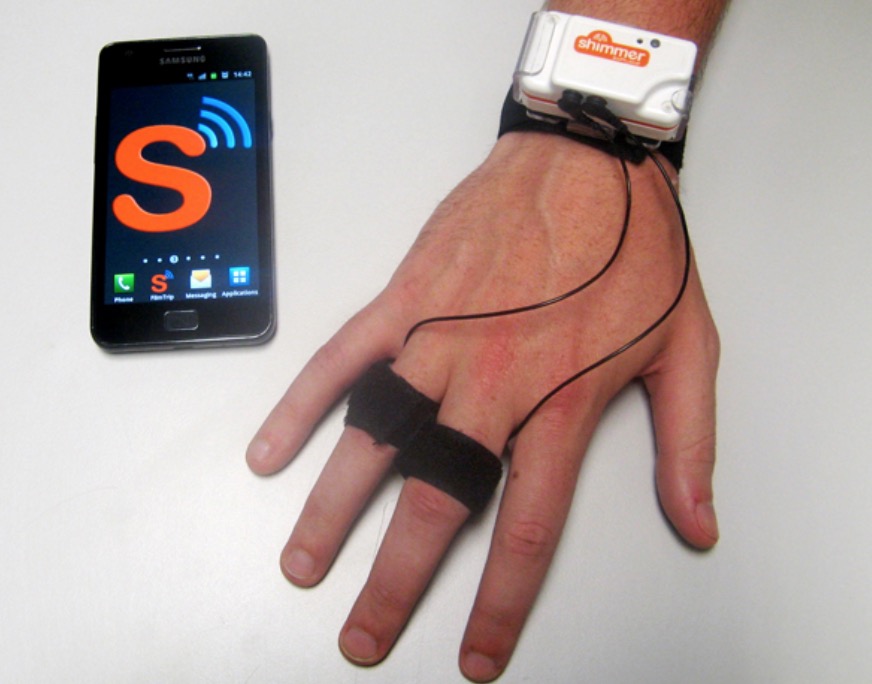
Monitoring the cognitive load, stress, and engagement of developers can help researchers expand the tools and methods used in having developers present their knowledge. These tools used in this research are a next level version of some of the tools and devices that are made commercially to the average consumer. This goes to show that the devices that are made affordable and accessible to the general consumer can be adapted to solve multiple problems.
The tools today are advancing at a remarkable rate and surpassing the expectations that any researcher would have expected. As these tools become less expensive and more portable, the door opens for more intense research opportunities.
You can find out more about my research projects on my blog: http://blog.denaeford.me.
Follow @myhealthimpact and see other posts at www.myhealthimpactnetwork.org on the #STEM + #tech + #health journey.
Share

October 22, 2015
STEAM and Sports
There has been much discussion on Baltimore Ravens offensive lineman, John Urschel. Urschel is currently in his second NFL season, but his energy is not fully invested in football. While attending and playing football at Penn State University, he earned both a bachelor’s and master’s degree in mathematics. He is currently working towards a PhD in applied mathematics and was invited to speak to NSA mathematicians about an algorithm created by him, to aid in the organization of large amounts of complex data. His published works have been widely celebrated in and outside of the mathematics community. Urschel has been one of the more prominent figures pushing the importance of STEM education in school. He has taken his position in the community to tour Baltimore and speak at local schools. Although he is currently being profiled with articles about him found in the Huffington Post, Sportsnation, and Sports Illustrated, he is not the only NFL athlete who has dedicated his time to STEAM education. Vernon Davis, the San Francisco 49ers current tight end has also been highlighted.
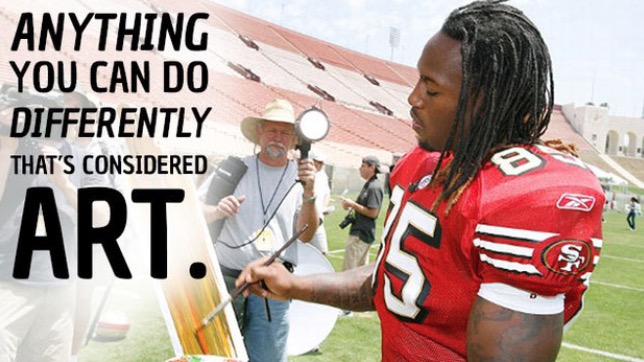 Vernon Davis grew up in inner city Washington, DC and quickly noticed his passion for visual art. He went on to change his major while at the University of Maryland from criminal justice to studio art. He now continues to pursue his passion of art through painting. He now sponsors a visual arts scholarship, promoting the arts for interested high schoolers in the San Francisco area. Davis, who was initially embarrassed by his interest in the arts while a high school student, has said that the arts have provided him with a refuge away from football life. It has also taught him the importance of self-confidence, and wants to be sure that students interested in the arts are able to follow their interests regardless of social pressures of their peers.
Vernon Davis grew up in inner city Washington, DC and quickly noticed his passion for visual art. He went on to change his major while at the University of Maryland from criminal justice to studio art. He now continues to pursue his passion of art through painting. He now sponsors a visual arts scholarship, promoting the arts for interested high schoolers in the San Francisco area. Davis, who was initially embarrassed by his interest in the arts while a high school student, has said that the arts have provided him with a refuge away from football life. It has also taught him the importance of self-confidence, and wants to be sure that students interested in the arts are able to follow their interests regardless of social pressures of their peers.
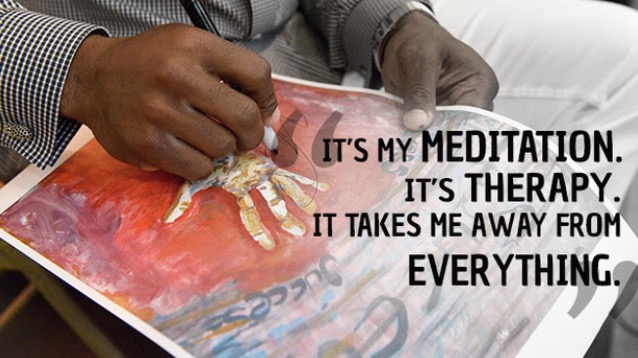 These two athletes are providing a great example of the multidimensionality of professional athletes. These men have dedicated hours upon hours for a significant portion of their lives to football, but have found an alternative outlet in STEAM (Science, Technology, Engineering, Arts, and Mathematics). It is important to note that education in these domains is pivotal for our education system. We must expose children of all communities to these realms, providing them with a variety of options to pursue. The ability of Urschel and Davis to use their platforms to advocate for STEAM is a significant stride for education, especially in the underserved communities in which they have spent their time.
These two athletes are providing a great example of the multidimensionality of professional athletes. These men have dedicated hours upon hours for a significant portion of their lives to football, but have found an alternative outlet in STEAM (Science, Technology, Engineering, Arts, and Mathematics). It is important to note that education in these domains is pivotal for our education system. We must expose children of all communities to these realms, providing them with a variety of options to pursue. The ability of Urschel and Davis to use their platforms to advocate for STEAM is a significant stride for education, especially in the underserved communities in which they have spent their time.
Share

March 26, 2015
Women of Color: STEM Faculty Discussion
Currently my department is actively recruiting faculty members. We have candidates come and present their work as we listen and take notes on their interesting talks and pass them on to the department. However, I noticed something interesting. None of the faculty candidates talks that I have sat in on have been women of an underrepresented group. I thought it was pretty interesting when I was trying to find a paper for my group to discuss at our weekly meeting that I stumbled upon a guest editorial by Marcy Towns titled Where are the Women of Color? Data on African American, Hispanic, and Native American Faculty in STEM.
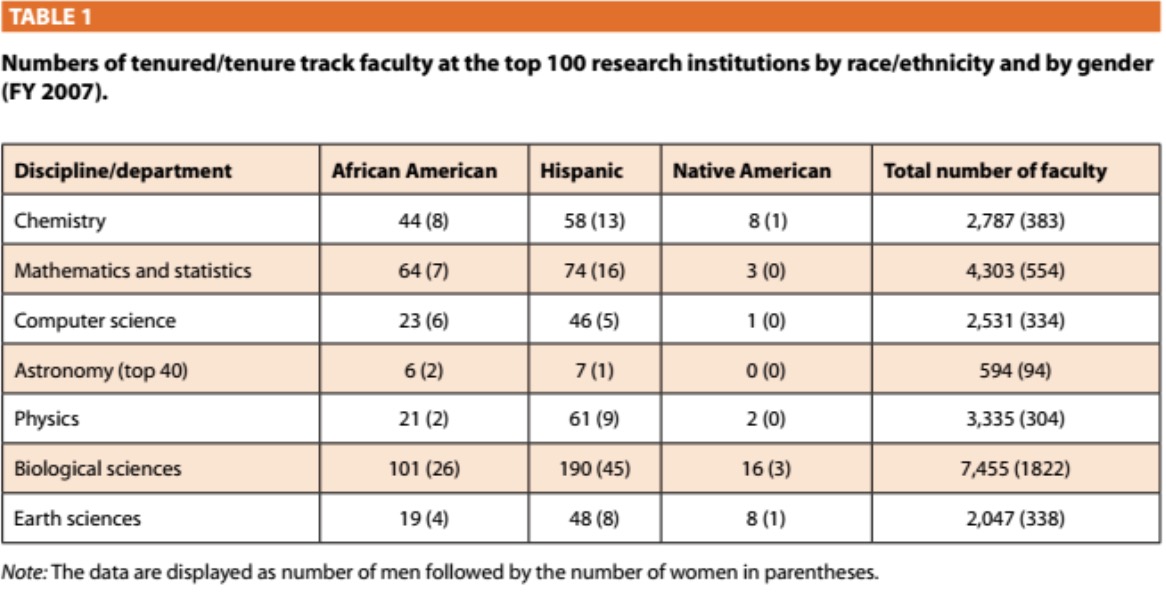
I felt as though this paper fell into my lap and but I was very hesitant to bring it to our reading group in fear that I would be pinned as “angry”. After great deliberation with one of my labmates I decided to bring it up while we were talking about another faculty candidate. Of course me being as awkward as I am the conversation started out slow but then generated a great flow. In the conversation we talked about different cultures, what it means to be a majority, the benefit of having role models, and having professors and faculty you can identify with(beyond race) as a student. In this discussion I think we all learned a little about the environments we have come from and the transition to NC State’s level of diversity. The conversation even took a turn to talk about the effects of diversity in general and what that is to us. Personally, NC State was a step backwards for me as far as diversity is concerned, for others it was giant leap forward.
I can’t begin to explain how excited I am to have talked about this with my lab group. We definitely learned a lot about each other and this allows us to grow closer as researchers and to understand each other better.
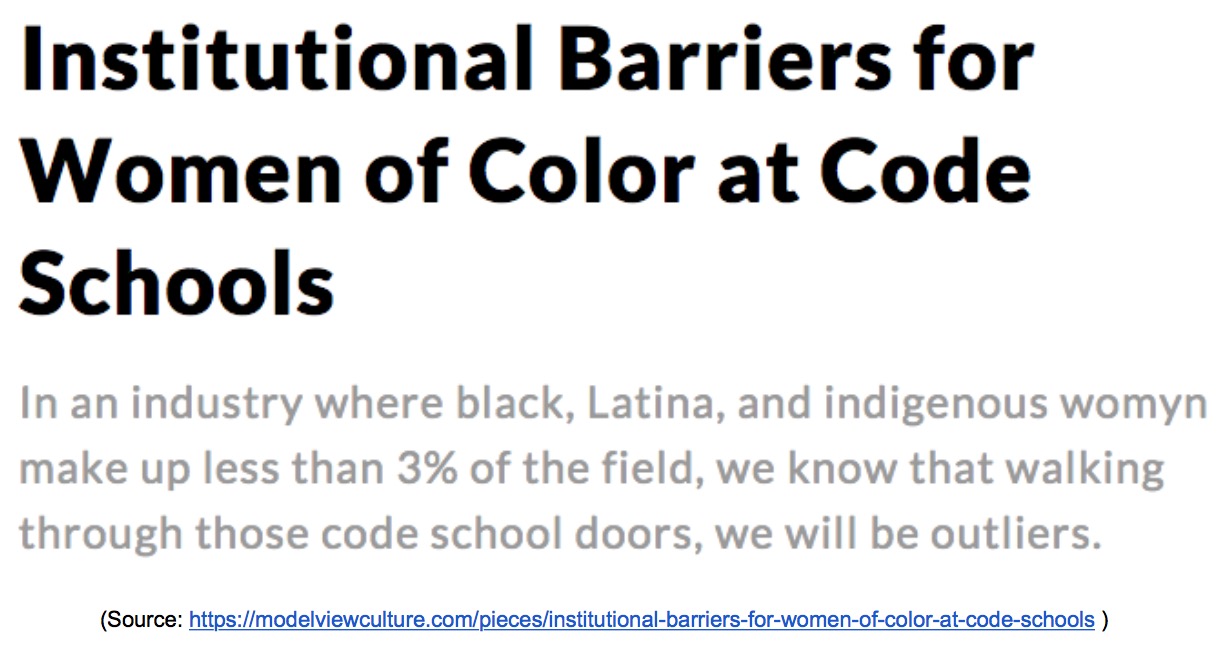
During our talk I sent the paper to the group email list for people to read afterwards. I’m guessing my advisor, who was not there at the discussion, read the paper. He later sent me a blog post by Stephanie Migdalia Pi Herrera titled Institutional Barriers for Women of Color at Code Schools. The most interesting point of this blog post that resonated with me is trying to bring up the topic as an issue without sounding aggressive. I just thought it was amazing how my advisor wasn’t at the discussion but was able to send me support about the topic.
I encourage all our readers and followers to read both articles. You can claim it as a way of celebrating Women’s History Month! I guarantee you will find something valuable from there even if you are not a woman. Consider bringing up these articles as a great way to start a conversation with your own community. Also, see more on the topic noted as Acknowledging Diverse Experiences in STEM by @drfayonline.
Share
March 01, 2015
MyHealthImpact Topics 2015
Click on the word clouds below to see a recap of the wonderful blogs by our Research Team so far in 2015.
Stay tuned to @myhealthimpact for more news on the interconnection between health and tech!
Share

February 24, 2015
The Power of Twitter Technologies
This week for whatever reason my Twitter has been popping. I have acquired about 20 followers this week alone. I was telling a friend about all the connections I make on Twitter and then they told me that they aren’t too interested in joining another social media site. They clearly weren’t familiar with the Power of Twitter.
I would say that Twitter is a little more than just another social site. You have the ability to speak directly to companies, celebrities, news stations, and other organizations in an instant. There has been instances where my friends have been tweeted kind words directly from Olympic athletes that they would otherwise not have access to. There is no other platform like this online which is what makes Twitter so amazing. It puts them at your fingertips.
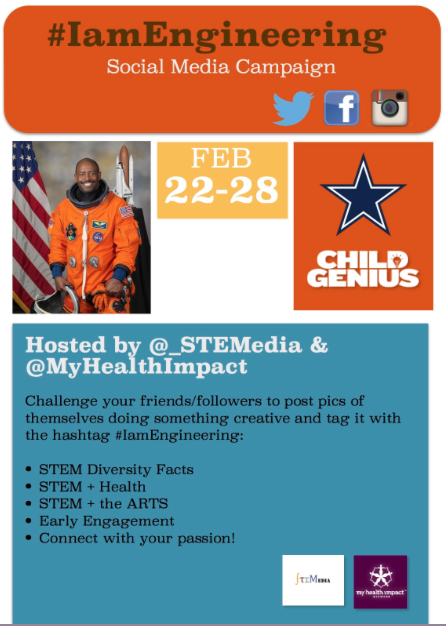
In addition, on Twitter you have the ability to join people in chats with similar interests using the hashtag symbol. You can literally be anywhere in the world but join the “buzz” with less than 140 characters. For example, @MyHealthImpact and @_STEMedia will be hosting a campaign this week with the hashtag #IamEngineering. Through this campaign we will looking for creative posts involving STEM diversity, health, arts, early education, or just an overall connection to your passion. Through these chats people find common interests and from there bonds are formed.
I mentioned earlier that I gained a lot followers this week. From me using hashtags for certain organizations, such as the workshop that I would be attending in May #CHASE2015, I have been able to become acquainted with other computer scientists in similar research areas. This week was also the ACM Richard Tapia Celebration of Diversity in Computing Conference. I unfortunately was not able to attend but I felt like I was virtually there since a lot of my followers were tweeting about the event. I was able to actively keep up with sessions and meetups. I eventually tweeted that I wish I was there and the conference replied to me and encouraged me to be there next year!
Share

December 03, 2014
Graduation
In less than a month I graduate from college. Exciting right? Well not entirely. Throughout my entire college career I’ve never been so lost in what this graduation means to me. I usually don’t get very excited for things, but I may be one of the least excited to graduate. I’m not upset about missing the college experience or wanting to live the college life forever, its just… well I’m not sure what I’m doing after graduation. This is rooted from not even being sure if I like my major.
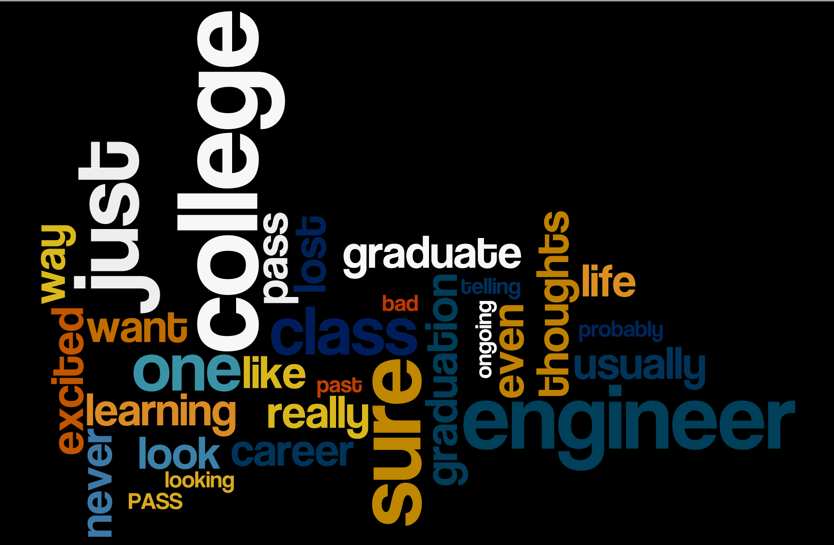
I’m usually pretty good at taking bad news, but I’m not sure if I’ll be okay if I don’t pass my Advanced Microprocessor Design class(ECE 463). This is the class you hear terrible stories about. This is that class that almost everyone is afraid to take, but have to. This is the only class thats standing in my way of a dual degree. I’ve never been so worried about a class in my life. I’ve been working towards two degrees and I can’t just give up and settle for one! I can’t just look past all of those late nights, impromptu team meetings, and probably some of the worst stress I’ve gone through. Time is running out and my circumstances don’t look too great, but I NEED TO PASS! There’s too many people looking out for me and keeping me in their prayers for me not to pass.
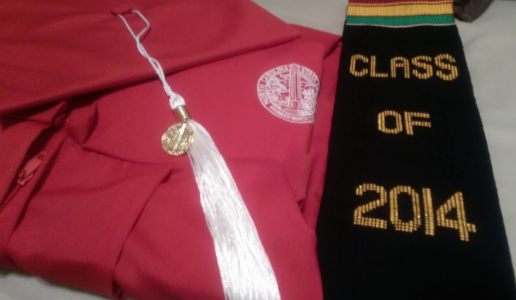
What makes my thoughts race even more is a conversation I had with one of my friends the other day. She was telling me how she doesn’t feel like she’s learning how to be an engineer, but rather being taught how to do a job. I definitely see where shes coming from. Its an ongoing joke in the engineering department of “What’s the purpose learning the material, if they’re just gonna teach you the way they want us to do it there.” Of course we’re not serious when we say this, but at the same time we are.
What have we really learned in college? I mean sure I can spit out some formulas, but I find myself kinda lost in direction. What do I really want to do as a career?
Thanks to @myHealthImpact for permitting me to share my thoughts.
Share

November 06, 2014
Finding STEAM not STEM
I recently found out about STEAM in my entrepreneurship class, and my mentor mentioned it not to long after. So, what is STEAM? STEAM is Science, Technology, Engineering, ARTS and Math. I got to thinking, “Am I lacking artistic influences in my life?” I had to list out all the “artsy” things that influence me, such as listening to music, reading the fashion sections of online magazines, and even my following a lot of independent visual artists on Instagram.
With the inclusion of arts, we, as students and young people, can retain some of our divergent thinking abilities we tend to lose. Divergent thinking is really just another way of saying thinking out the box.
One thing I’ve noticed about myself through all this STEAM talk is that I’m not that creative. I can draw pretty well, but that’s only when I look at a picture. I have artistic abilities, but not as creative.
Why are the arts and creativity important? We need creativity in all STEM fields. Creative ideas lead to creative solutions. The more unique and creative a solution is, the more ideas people can build on and from that one solution. You have to admit that whoever had the idea of creating a 3D printer must have had been on a another level of divergent thinking.

We even have an initiative that was start here on campus by one of my friends and PhD Civil Engineering Student, Nehemiah Mabry. His initiative is STEMedia, where he tries to use poetry, visual arts, and other art methods to keep students within STEM. @myHealthImpact supported STEMedia earlier this year in an effort to bridge STEM+Arts. Here’s my attempt at reciting some STEM poetry. http://youtu.be/aYrSru7qt-E?list=UUUcg8ZH-u4j3sHnVH6rUBqQ
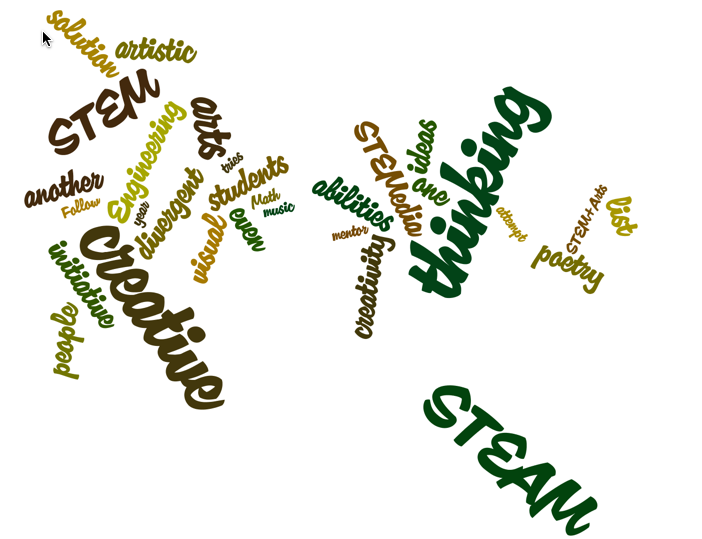
Follow us @myhealthimpact on creative Health Meets Tech.
Share

September 25, 2014
New PhD Student – Technical Writing Matters
Going straight from undergraduate to Ph.D. is a huge jump that I wish I was better prepared for. Technical writing is something that is very important as a Ph.D. student and wish I had more feedback on as an undergraduate who was interested in higher education.
As I approach my fifth week as a Ph.D. student, I can definitely say that this path has been more rigorous than I expected. The class work is a bit more intense but it is fine. My technical writing skills is what shakes me up; something that I definitely have to improve on. It is not stressed enough in undergraduate studies but is clearly something that needs to be polished as a PhD student. Writing to journals and conference proceedings is a right of passage and continues after graduation. Articles and publications need to be as easily understood as possible so that others can acknowledge the research. Weak papers will not be accepted in the scientific community. Personally, technical writing is a task that I have struggled with and have tried to ignore for so long. Unfortunately, now it’s time to face the reality of the matter.
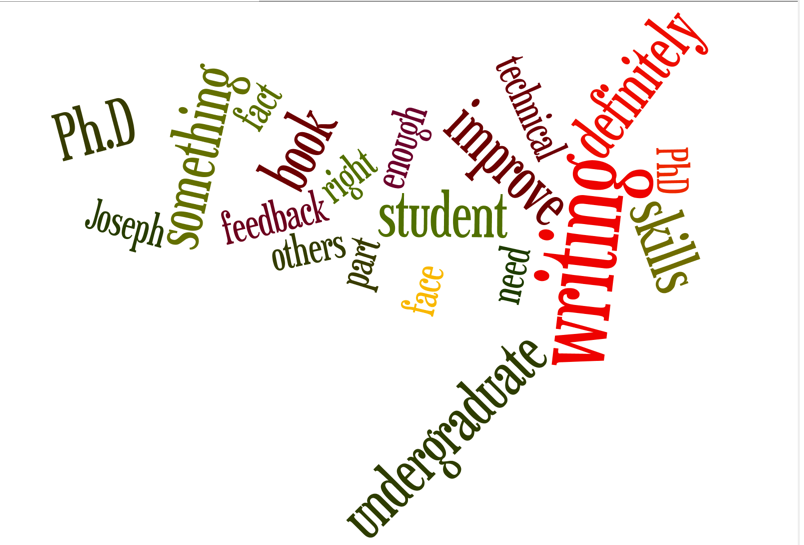
Recently, I submitted a proposal for a class project and the professor acknowledged that my thoughts were all over the place and recommended that I read and do exercises out of the book, Style: Lessons in Clarity and Grace by Joseph Williams and Joseph Bizup. The hardest part about reading the feedback was the fact that I know I have a problem, but have not yet sought out the appropriate resources. I’m just glad there are professors that care enough to help me to improve these skills and mentor me to success.
Now that I have the book and I am actually pretty curious to see how much it helps my writing style. In addition, there are writing services offered by the NC State University that I will most likely be taking advantage of. Currently, my personal goal is learning to accept the fact that there are skills I need to improve upon. This book is definitely step in the right direction for me.
As a new research scholar for MyHealthImpact Network I will be able to tell my sentiments in hopes that it will encourage others to not feel alone about the issues that I face. Communicating on this platform (myhealthimpactnetwork.org; @myhealthimpact) is a great way for me to connect with other students aspiring to pursue a PhD and those who are going through it with me. The best part of it all is that I’m telling my story and people are actually listening.
Follow @myhealthimpact for my blog posts on the process. See how I write about what matters in health and my generation.
Share

August 27, 2014
Graduate School Life
The program that I’m involved in is a year. So when (not if) I finish, I will have a master’s degree and a teaching license. I knew that this experience was going to be a little more difficult and different but nothing really could have prepared me for what I was about to endure. I absolutely love my program and new school…although it’s a lot of purple and gold and not red, I’m managing. I enjoy the subject matter, I look forward to going to class, meeting with my professors and working with my cohort. Please believe me when I tell you that graduate school is not undergrad. It’s definitely an adjustment. It’s a lot of reading and when I say a lot I mean just that. Everything is much more so application based. The professors want to make sure that we really know and understand the things taught. Being able to memorize and regurgitate concepts on a piece of paper? Yep, those days are over.
My program is set up in a cohort, which is basically like a family of everyone in your program in which you take all of the same classes at the same time. This has been so helpful. Use your resources. You could take option one and just wander away from the group and struggle on your own or take option two and realize that you aren’t in this by yourself and struggle together. I’ll take option two for $200 Alex! I see it as strength in numbers situation. It really feels like that we’re leaning on one another in this rough 5-week summer session. I honestly don’t know what I would do without them.
I’ve had many sleepless nights, where food wasn’t even thought about, sticky notes everywhere and my planner looks like a bunch of hieroglyphics but I don’t mind. I’m assuming this is the feeling you get when you want to succeed as bad as you want to breathe.
My advice although limited in nature would be to find interesting ways to relieve stress and give yourself a break. As much as catching up on sleep would be the ideal thing to do, just taking a moment to breathe and enjoy your accomplishments thus far, re-organize and prioritize is a little more rewarding to me.
I’m still here. I’m making it. You can too!
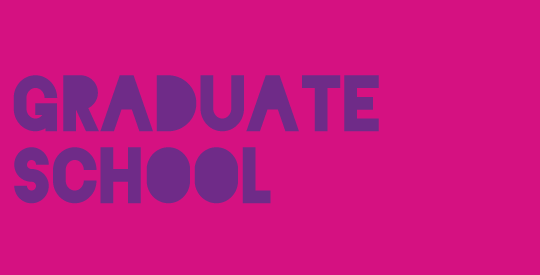
Share

July 20, 2014
The Next Leg of the Journey
Working with MyHealthImpact made me realize that settling for just my bachelor’s degree and that mediocre was not acceptable and that not following my hearts desire was not ok.
By the end of my junior year of college, I knew that working in my field (business) as soon as I graduated undergrad was not what I wanted to do…directly anyway. This caused me to do a bit of soul searching. In soul searching, it led me back to the only thing I talked about doing as a kid, which was being an educator.
I did my research on what I needed to do, what programs to apply to and I went to work early on in my senior year. Initially while applying, getting out of North Carolina was my only goal. I applied to different school types and in different areas. Amazingly, I ended up right where I never thought I would be; 30 minutes away from home at East Carolina University. This made me realize, that everything happens for a reason and exactly how it’s supposed to regardless of the plans I thought I had for myself. I will be working towards my Masters in the Art of Teaching starting in June and if everything goes according to plan, I’ll be someone’s fifth or sixth grade teacher starting August 2015.
At first I wasn’t sure how to feel about going to a school so close to home but it began to grow on me. Once I met with some of the faculty and staff in my program, it slightly began to feel like home…exactly where I should be and exactly what I sh ould be doing. I’m completely excited about the next leg of life’s journey!!
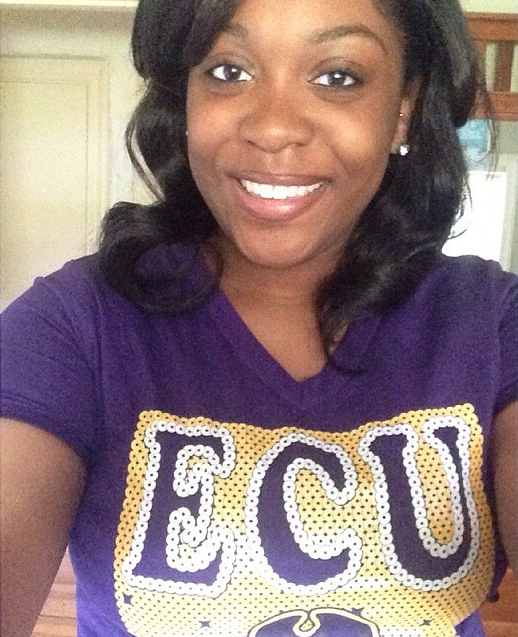
Share
In Partnership with: Poole College of Management, College of Humanities and Social Sciences, National Science Foundation, Penn State
Take Action, Get Tested: Find Your Local Testing Center Why Get Tested?
